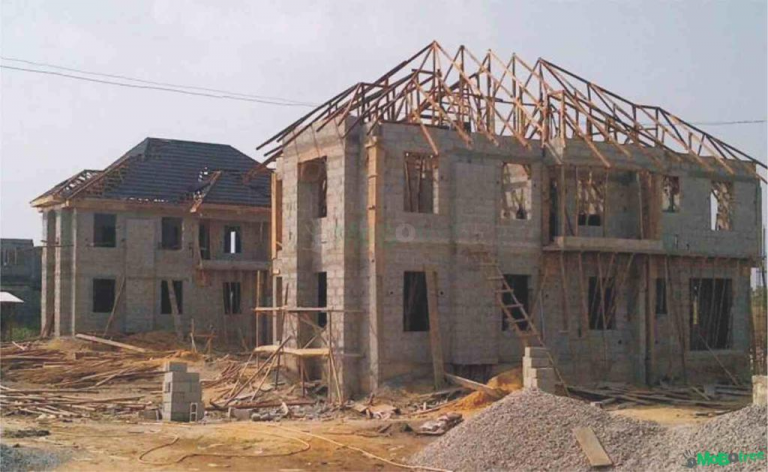
In its efforts of making a home available to every Nigerian, the federal and state governments have made some laws through legislative houses. From early 1970s to the 2000s and the current decade, laws that focus on making accessing housing funds and reducing other problems preventing effective home ownership have been passed.
For instance, the Mortgage Institutions Act was enacted in 1989 with a view of helping people at the middle and bottom of the pyramid accessing government’s housing intervention funds. This is equally followed by the enactment of the Federal Mortgage Bank of Nigeria Act 1993, which led to the establishment of the Federal Mortgage Bank. The Trustee Investment Act,1962, the Nigeria Social Insurance Trust Act,1993, the Nigeria Insurance Act, 2002, the Investments and Securities Act,1999, the Federal Housing Authority Act,1990, and the Land Use Act, 1978 have also one way or the other helped and still assisting prospective home owners and other stakeholders.
A number of these Acts were enacted with the strategic intention of increasing the provision of low-cost houses and developing the country’s real estate and construction sector through effective participation of the private sector. However, evidences over the years indicate that Nigeria still struggling in its drive of bridging 17 million housing gap. This, according to some experts, is largely due to the weak institutional framework, corruption, inadequate low-cost housing policy, lack of political will and absence of the national housing database.
Register for Tekedia Mini-MBA edition 19 (Feb 9 – May 2, 2026): big discounts for early bird.
Tekedia AI in Business Masterclass opens registrations.
Join Tekedia Capital Syndicate and co-invest in great global startups.
Register for Tekedia AI Lab: From Technical Design to Deployment (next edition begins Jan 24 2026).
Across the country, funding remains the most determinant factor for buying or building a home at an early stage of citizens’ career. Construction period and education of the prospective homeowners are also imperative. The imperative of education has been hinged on the fact that prospective home owners need to access some information regarding government’s policies and initiatives. Meanwhile, when it is difficult to build a house, analysis has indicated it places pressure on the rented sector with the potential for rental housing affordability problems.
The Intervention and Mortgage Banks
Apart from the previous funding-focused intervention, the Federal Ministry of Finance and the Nigerian Sovereign Investment Authority created Family Homes Funds with the commitment of facilitating and supplying 500,000 homes by 2023. Our checks reveal that the Federal Mortgage Bank of Nigeria has a number of provisions for the prospective homeowners. According to the Bank, “National Housing Fund Mortgage Loan is a facility granted at 4% interest to accredited Primary Mortgage Banks (PMBs) for on-lending at 6% to NHF contributors over a maximum tenor of 30 years, which is secured by the mortgaged property.
A contributor can access up to ?15million from the Fund through an accredited and licensed PMB as a mortgage loan to build, buy, improve or renovate own home after 6 (six) months of continuous contributions. This lending conditions make the NHF unequalled as a vehicle for affordable housing delivery in Nigeria.”
Looking at the 4% interest rate of the Bank, our analyst notes that the position of an expert, who recently said own a house is a bad investment might not be true. He opined that individuals should buy a home when the mortgage is less than 8%. According to him, prospective homeowners need to be psychological in their efforts to own a home. However, as the debate rages on whether people should seek mortgage loan or not, evidence has shown that people who have interest in the loan usually considered their religion doctrine or recommendation regarding loan collection. Knowledge was discovered not be a significant factor in the intent of using mortgage financing. Despite this, Nigeria needs more intervention fund to boost homeownership.
Home Ownership Through Government Funding Support: The Alpha Mead Way
Since lack of knowledge about the existence of the interventions and how the mortgage loan works have characterised people’s inability to own houses, Alpha Mead Group, a total real estate solution company, recently organised a webinar that helps people understand how to key into the various government initiatives.
During the seminar, Engineer Femi Akintunde, the Group Chief Executive Officer, noted that when a person has the needed information at his fingertips, he or she would be able to make the right decisions regarding owning a home. “Having a home, goes in a long way of having a quality life. Because it saves one from constant knocking of the door by the landlord for rent payment.” Participants of the seminar were taken through the processes of leveraging existing palliatives provided by the governments through varied agencies. Engineer Akintunde reiterated that his company has decided to target people who earn less than N25 million annually. This is in addition to the people who earn between N25 million and N50 million, being targeted before.



